Tour de France 2025 route: Pyrenees triple, Mont Ventoux return and Alps climax on menu
Race to take place 5-27 July, with Grand Départ in Lille, before an anti-clockwise route
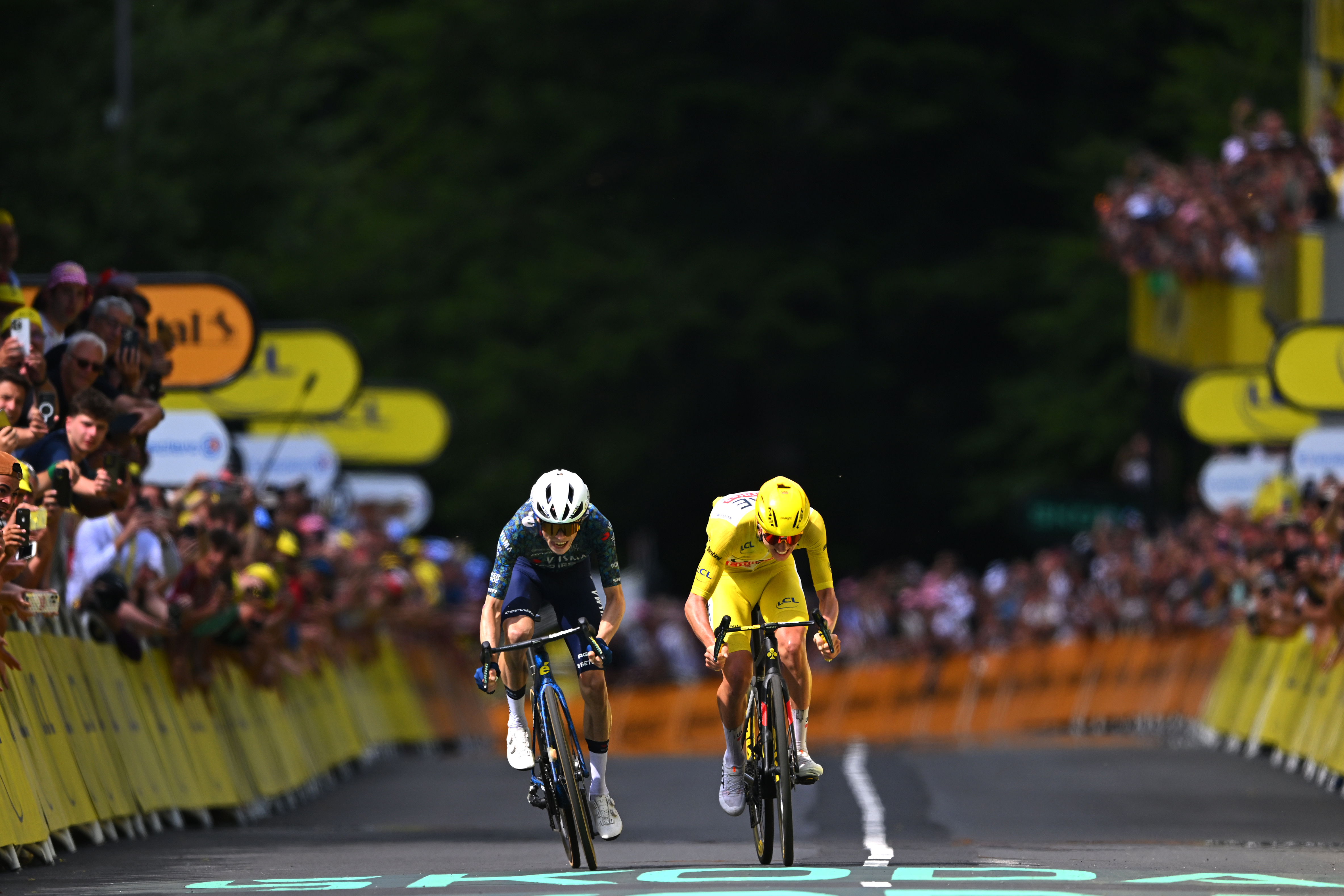
The 2025 Tour de France will feature a hat-trick of tough days in the Pyrenees, a return of Mont Ventoux, and a climax in the Alps, race organiser ASO announced on Tuesday.
The route for the 112th edition of the race was unveiled in a presentation inside Paris's Palais des Congrès. It will be the first Tour to take place entirely in France for five years.
Next year's race will begin on 5 July in Lille, and will then end in Paris, returning to the capital after a year in Nice, on the 27 July, the day after the Tour de France Femmes avec Zwift has finished.
The race begins with a series of hilly stages, as well as an individual time trial on stage five, meaning that this Tour will not be one to ease into for the general classification contenders.
It then heads towards the Pyrenees via the Massif Central, with three back-to-back mountain tests in the south of France on stages 12, 13 and 14. There is then the return of Mont Ventoux, before the Tour heads to an Alpine conclusion, with 5,500m of elevation tackled on stage 18 to Courchevel, the most of next year's race.
There are six mountain top finishes, and two time trials, including one in the Pyrenees, as well as five sprint opportunities.
Tour de France 2025 stage table
| Stage | Day | Start | FInish | Distance | Type |
|---|---|---|---|---|---|
| 1 | 5 July | Lille Métropole | Lille Métropole | 185km | Flat |
| 2 | 6 July | Lauwin-Planque | Bolougne-sur-Mer | 209km | Hilly |
| 3 | 7 July | Valenciennes | Dunkirk | 172km | Flat |
| 4 | 8 July | Amiens | Rouen | 173km | Hilly |
| 5 | 9 July | Caen | Caen | 33km | ITT |
| 6 | 10 July | Bayeux | Vire Normandie | 201km | Hilly |
| 7 | 11 July | Saint-Malo | Mûr de Bretagne | 194km | Hilly |
| 8 | 12 July | Saint-Méen-Le-Grand | Laval | 174km | Flat |
| 9 | 13 July | Chinon | Châteauroux | 170km | Flat |
| 10 | 15 July | Ennezat | Le Mont-Dore (Puy de Sancy) | 163km | Mountains |
| 11 | 16 July | Toulouse | Toulouse | 154km | Flat |
| 12 | 17 July | Auch | Hautacam | 181km | Mountains |
| 13 | 18 July | Loudenville | Peyragudes | 11km | Mountain ITT |
| 14 | 19 July | Pau | Luchon-Superbagnères | 183km | Mountains |
| 15 | 20 July | Murat | Carcassonne | 169km | Hilly |
| 16 | 22 July | Montpellier | Mont Ventoux | 172km | Mountains |
| 17 | 23 July | Bollène | Valence | 161km | Flat |
| 18 | 24 July | Vif | Courchevel (Col de la Loze) | 171km | Mountains |
| 19 | 25 July | Albertville | La Plagne | 130km | Mountains |
| 20 | 26 July | Nantua | Pontarlier | 185km | Hilly |
| 21 | 27 July | Mantes-La-Ville | Paris | 120km | Flat |
Tour de France 2025 full route map
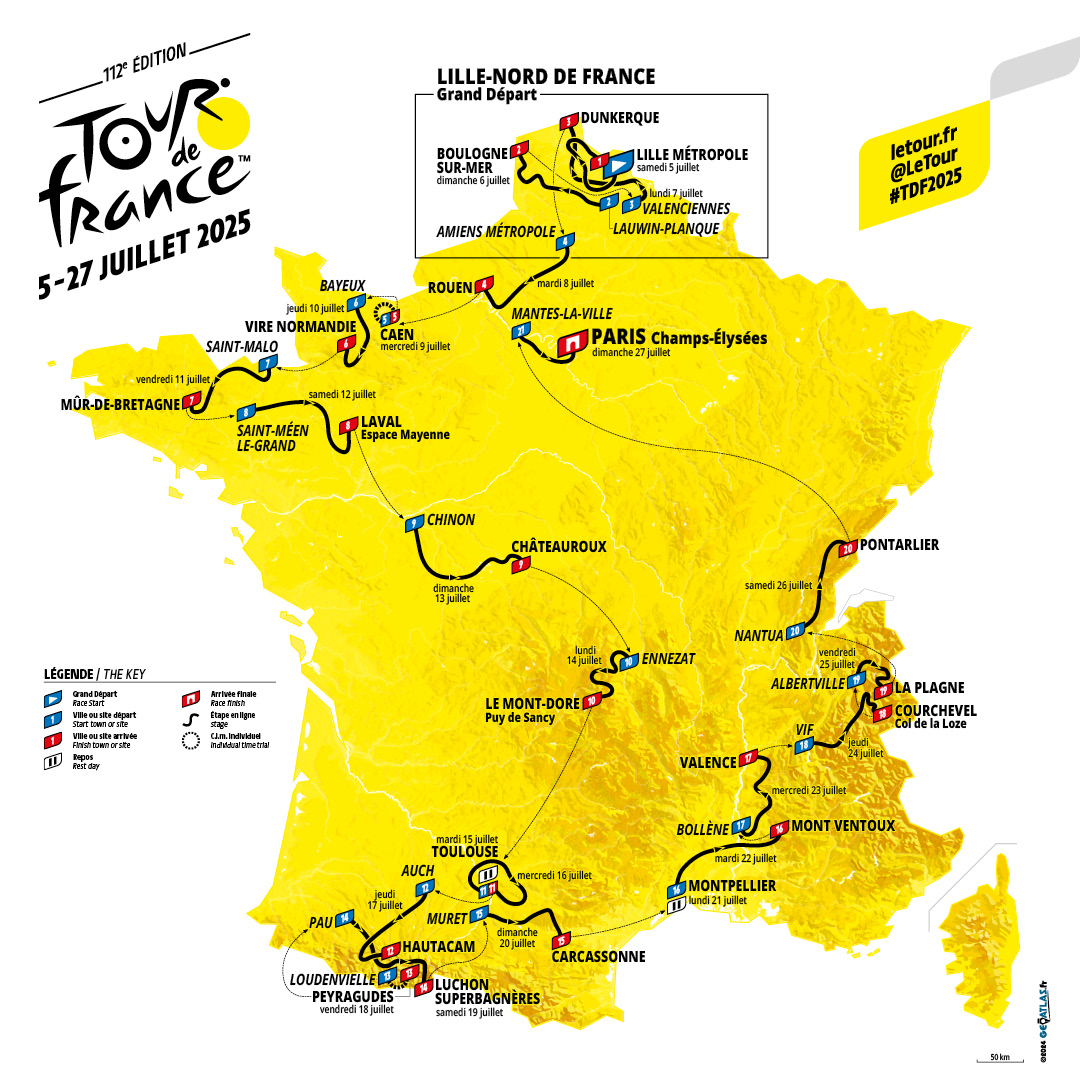
Tour de France 2025 route stage guides
Stage one: Lille to Lille (185km)
Get The Leadout Newsletter
The latest race content, interviews, features, reviews and expert buying guides, direct to your inbox!
The race starts as it means to continue – inside the borders of mainland France, where it will remain until the finish in Paris. It's a mostly flat stage and, despite two categorised climbs in the second half, it will very likely end in a bunch sprint and a sprinter pulling on the first yellow jersey of the race for the first time in five Tours.
Stage two: Lauwin-Planque to Boulogne-sur-Mer (209km)
One for the puncheurs, with a series of tough ramps in the finale – including one to the line, that are likely to rule out the pure sprinters. They begin with the Côte de St Etienne au Mont with 10km to go, with the Côte d'Outreau following hot on its heels a few kilometres later. Then there is a final, easier but still key, ramp up to the line in the centre of Boulogne, totalling 1.2km at 3.8%. A tough finish.
Stage three: Valenciennes to Dunkirk (172km)
A transfer back inland to Valenciennes sees the race bound once again for the coast, on what will very likely be another day for the sprinters. Their teams will need to be on their game though, with the classified climb of Côte de Cassell followed by a super-flat final 35km offering potential complications with the wind. By the admission of Tour boss Christian Prudhomme, "the stage has been designed to encourage the formation of echelons", or a bunch sprint.
Stage four: Amiens to Rouen (173km)
A lumpy stage that heads south west from Amiens in the north to the Norman city of Rouen. Up and down all day, the riders will have amassed 2,000m of climbing by the time they have finished. Just as the sprinters have had two bites of the cherry, this stage will offer the puncheurs their second bite, with a tough final 22km that will almost certainly decide the day's winner. A trio of tough côtes begins with the Bonsecours, summited at 20km to go, followed by the Grand'Mare at 12km and then the toughest of the three, the Rampe de St Hilaire at 4.5km. If all this wasn't enough, the final km is mostly uphill to the finish on the city's Boulevard de l'Yser.
Stage five: Caen to Caen ITT (33km)
Today's stage sees the race continue its modern trend of bringing the GC into play early doors, with today's flat time trial likely to be the first stage that sees the overall contenders staking a claim for yellow. Flat it may be, but 33km is certainly long enough for any rider not on their game to shed vital seconds that will need to be recouped later on.
Stage six: Bayeux to Vire (201km)
Christian Pruhomme has called this "the most challenging flat stage in the Tour's recent history", pointing out its 3,500m of vertical gain. Which doesn't sound very flat to us. Much of the stage crosses La Suisse Normande, so-called because of its ultra hilly nature. There is a tough little climb – the Côte de Vaudry (1.2km at 7.2%) with five kilometres to go, followed by a 10%, 700m ramp up to the line in Vire.
Stage seven: Saint-Malo to Mûr de Bretagne (194km)
Today marks the fifth stage finish at the Mûr de Bretagne in less than 15 years, though only one of those winners – Mathieu van der Poel (2021) – is likely to be present this time round, with the difference being that this year's finish sees a double ascent of the 2km / 6.9% climb.
It's another coastal start, this time at St Malo, with the parcours passing through Bernard Hinault's home village of Yffiniac on its way to its tough finale.
Stage eight: Saint-Méen-Le-Grand to Laval (174km)
The race heads south-east out of Brittany and into the Mayenne region for what will be a very flat stage on sheltered roads with a high likelihood of a bunch sprint – with the catch being that the final kilometre comprises a false flat that could catch out the pure sprinters.
Stage nine: Chinon to Chateauroux (170km)
It's another chance for the sprinters, with Chateauroux – which most recently hosted the Olympic and Paralympic shooting events – boasting a storied past when it comes to bunch sprints. It's where Mark Cavendish won his first Tour de France victory back in 2008, going on to win twice more, in 2011 and 2021.
Stage 10: Ennezat to Mont Dore
Bastille Day sees the first full-fat mountain stage of the Tour, with a tough day in the Puy de Dôme region scattered with major climbs. The riders even revisit last year's climb of the Puy de Dôme, climbing its first few kilometres early in the stage. It's a day of Alpine proportions, with seven classified ascents and 4,400m of climbing on the cards, including a summit finish at Mont Dore Puy de Sancy.
Stage 11: Toulouse to Toulouse (154km)
Following a rest day, the riders will be grateful that there are no mountains on the cards and they can ease their legs back into the race relatively gently. They will have to remain mentally vigilant though, with wind always ready to play havoc with the peloton on the French flats. Another day for the sprinters.
Stage 12: Auch to Hautacam (181km)
Today sees the race visit the Gers department in the far south-west for the first time since the 1970s, and the GC back in play. It's a hard day out, with the parcours featuring two big climbs in the latter stages. The riders crest the Col du Soulor (11.9km at 7.3%) with 47km to go. This is immediately followed by the smaller Col de Bordères before they drop right back down into the valley and begin the Hautacam (13.6km at 7.8km).
Stage 13: Loudenvielle to Peyragudes (11km)
A short day with the potential to make big differences, this uphill time trial finishes at Peyragudes' steep and straight 007 altiport seen in James Bond films. Romain Bardet and Tadej Pogačar have both won here, while it also hosted Fabio Jakobsen's courageous struggle home 13 seconds inside the time limit in the 2022 race. The first 3km of today's stage will be flat and even downhill, meaning the riders will accrue 650m of ascent in just 8km. Ouch.
Stage 14: Pau to Luchon-Superbagnères (183km)
The race has not finished at this mountaintop venue since the 1980s, and indeed, today's stage is a replica of stage 13 of the 1986 Tour, which saw Greg Lemond become the first US rider to win a mountain stage of the race and behind him, team-mate Bernard Hinault cling on to yellow.
A series of four very difficult climbs begins with the Tourmalet via Luz St Saveur (19km at 7.4%), followed by the Col d'Aspin (5km at 7.6%), the Peyrasourde (7.1km at 7.8%) and then Superbagnères (12.4km at 7.5%) to complete a total 4,950m of climbing. A big day for the GC riders.
Stage 15: Muret to Carcassonne (169km)
The world heritage city of Carcassonne may have bunch sprint history, but the sprinters have to get there first – today is decidedly lumpy, with an excursion through the Tarn valley and 2,400m of climbing as the riders head east from Muret. The wind too, will be an ever-present danger, not just for the fastmen but the GC riders too.
Stage 16: Montpellier to Mont Ventoux (172km)
Amazingly, it has been 12 years since the race last finished atop the 'Giant of Provence', though few who saw it that day will forget what happened – Chris Froome resorting to running up the climb after breaking his bike and no sign of a replacement.
With any luck, the excitement on today's stage will be restricted to good old-fashioned pedalling. Setting out from Montpellier, the parcours heads east then north, to approach the Ventoux on the popular route via Bedoin, for a very tough 15.7km climb at 8.7%.
Stage 17: Bollène to Valence (161km)
Once again it is the sprinters' turn, on this flat but potentially windy day from Bollène to Valence as the race begins its approach to the Alps. "There will be tension," says Christian Prudhomme, "at every change of direction over the final 50km," thanks to that wind.
Stage 18: Vif to Courchevel / Col de la Loze (171km)
The Tour breaches the 2,000m ceiling for the first time in the race on this outlandish stage to Courchevel in the Alps that features 5,500m of climbing.
It starts innocuously in the Alpine foothills, but its a phony war that doesn't last long, The mighty Col du Glandon (21.7km at 5.1%) and Col de la Madeleine (19.2km at 7.9%) stick up like formidable fangs in the middle of the course profile, delivering riders to the foot of the Courchevel / Col de la Loze (26.2km at 6.5%) which carries the Souvenir Henri Desgrange and the potential to seal – or forfeit – overall victory.
Stage 19: Albertville to La Plagne (130km)
Short, at just 130km (80 miles), but very mountainous, today's stage reprises the climb of La Plagne to the finish, not seen in the race since 2002 and the scene of Phil Liggett's famous "It's Stephen Roche!" commentarial exclamations in 1987.
It's climby from the get-go, with five Alpine ascents including the La Plagne summit finish, the toughest being the Col des Saisies (13.7km at 6.4%), the Col du Pré (12.6km at 7.7%) and the finishing climb (19.1km at 7.2%), all adding up to 4,600m of climbing and the final big-mountain stage of the race.
Stage 20: Nantua to Pontarlier (185km)
Travelling the length of the Jura mountain range, this is a hilly day out by anyone's reckoning, although not in the same league as the brutal Alpine excursions of the previous days.
With the GC all but decided and the sprinters waiting with bated breath for tomorrow's appointment in Paris, this will be an opportunity for the breakaways to take their chance.
Stage 21: Mantes la Ville to Paris Champs-Elysées (120km)
Marking 50 years since the race first finished on the Champs-Elysées, the Tour returns to its traditional Parisian conclusion after a year sunning it up on the Côte d'Azur thanks to the Olympics taking over the capital.
For the sprinters and their teams, today is often referred to as an unofficial world championship, while for everyone else, it's an opportunity to take it a bit easy, maybe drink some champagne, and hang on to the finish line and the right to the title 'King of the Road' – or indeed, 'Tour de France winner'.

Thank you for reading 20 articles this month* Join now for unlimited access
Enjoy your first month for just £1 / $1 / €1
*Read 5 free articles per month without a subscription

Join now for unlimited access
Try first month for just £1 / $1 / €1
After cutting his teeth on local and national newspapers, James began at Cycling Weekly as a sub-editor in 2000 when the current office was literally all fields.
Eventually becoming chief sub-editor, in 2016 he switched to the job of full-time writer, and covers news, racing and features.
A lifelong cyclist and cycling fan, James's racing days (and most of his fitness) are now behind him. But he still rides regularly, both on the road and on the gravelly stuff.
-
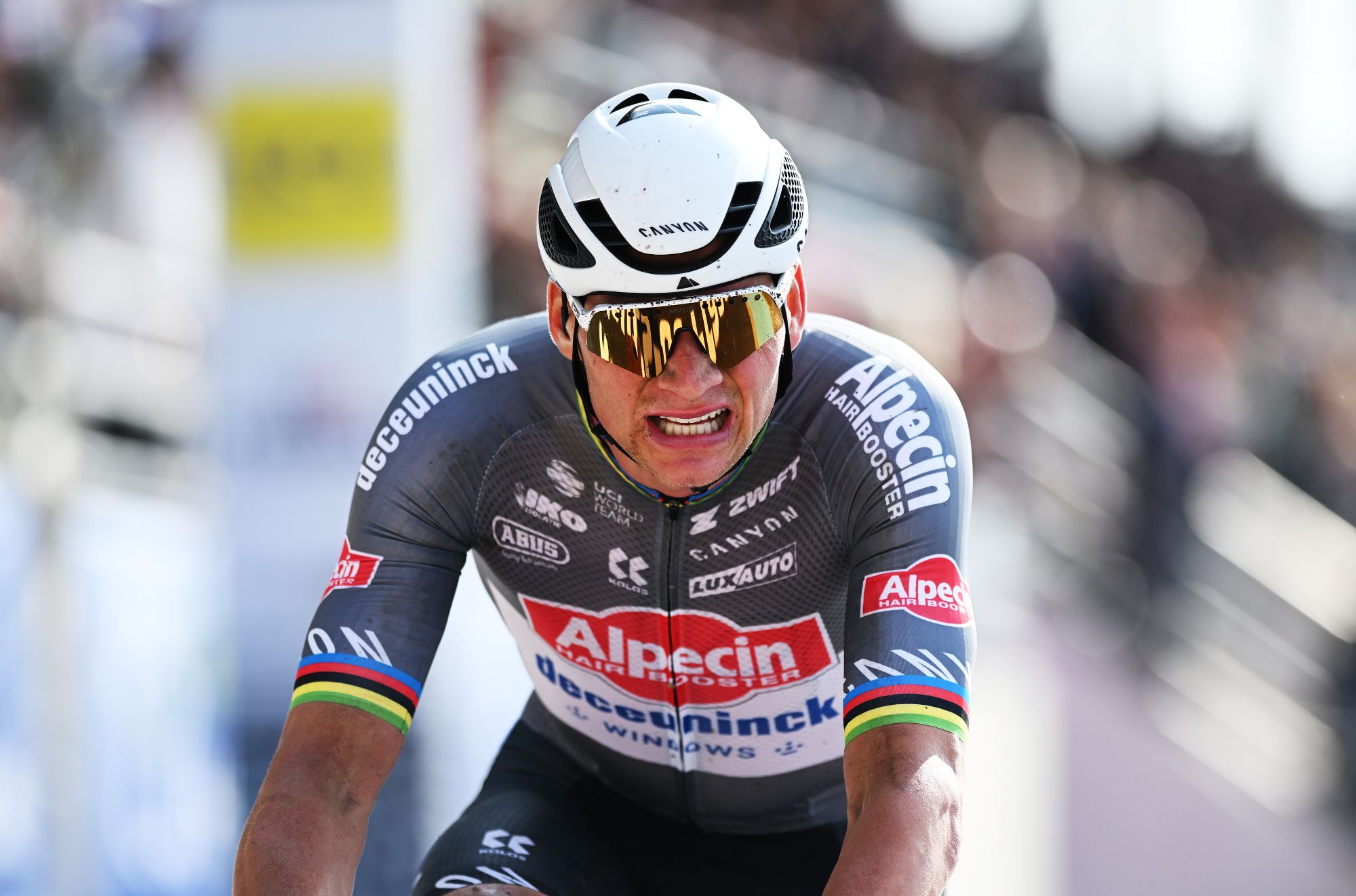 Man hands himself in to Belgian police after throwing full water bottle at Mathieu van der Poel during Paris-Roubaix
Man hands himself in to Belgian police after throwing full water bottle at Mathieu van der Poel during Paris-Roubaix30-year-old was on Templeuve-en-Pévèle cobbled sector when television pictures showed the bottle hitting him in the face
By Tom Thewlis Published
-
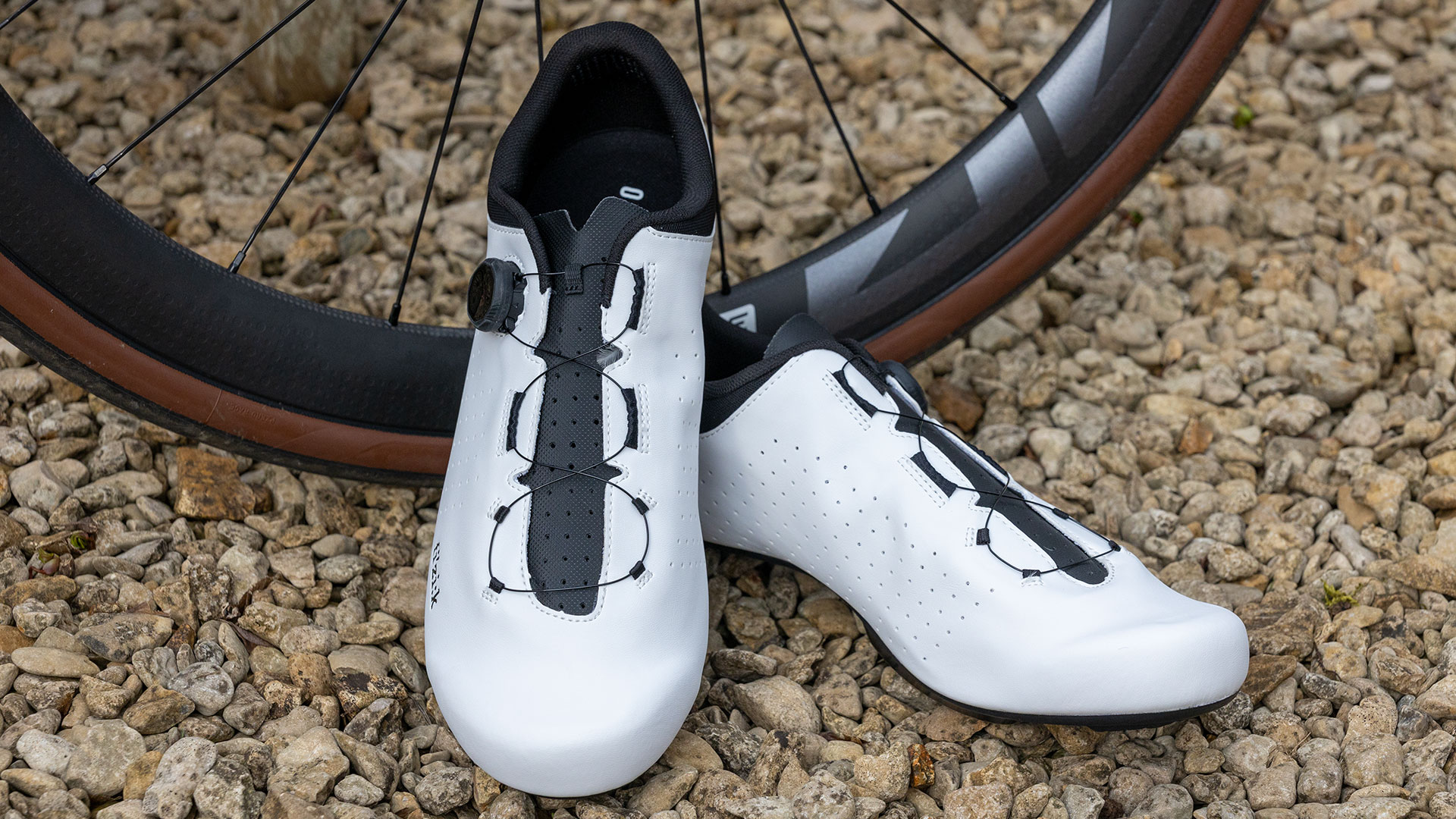 Fizik Vento Omna Wide shoe review: Yeti sneakers for those pedalling on a budget
Fizik Vento Omna Wide shoe review: Yeti sneakers for those pedalling on a budgetBroadly recommended for those of us with flipper feet
By Simon Fellows Published
-
 'It's a great place to start' - Edinburgh MP 'absolutely' backs Tour de France Grand Départ in 2027
'It's a great place to start' - Edinburgh MP 'absolutely' backs Tour de France Grand Départ in 2027Scottish city expected to host opening stage of the Tour de France, according to reports
By Tom Davidson Published
-
 'I'm doing 1,000km more than Lachlan Morton' - Cycling influencer to ride every stage of the 2025 Tour de France
'I'm doing 1,000km more than Lachlan Morton' - Cycling influencer to ride every stage of the 2025 Tour de FranceAmy Hudson plans to ride the entire Tour route, including the transfers, totalling 6,300km
By Tom Davidson Published
-
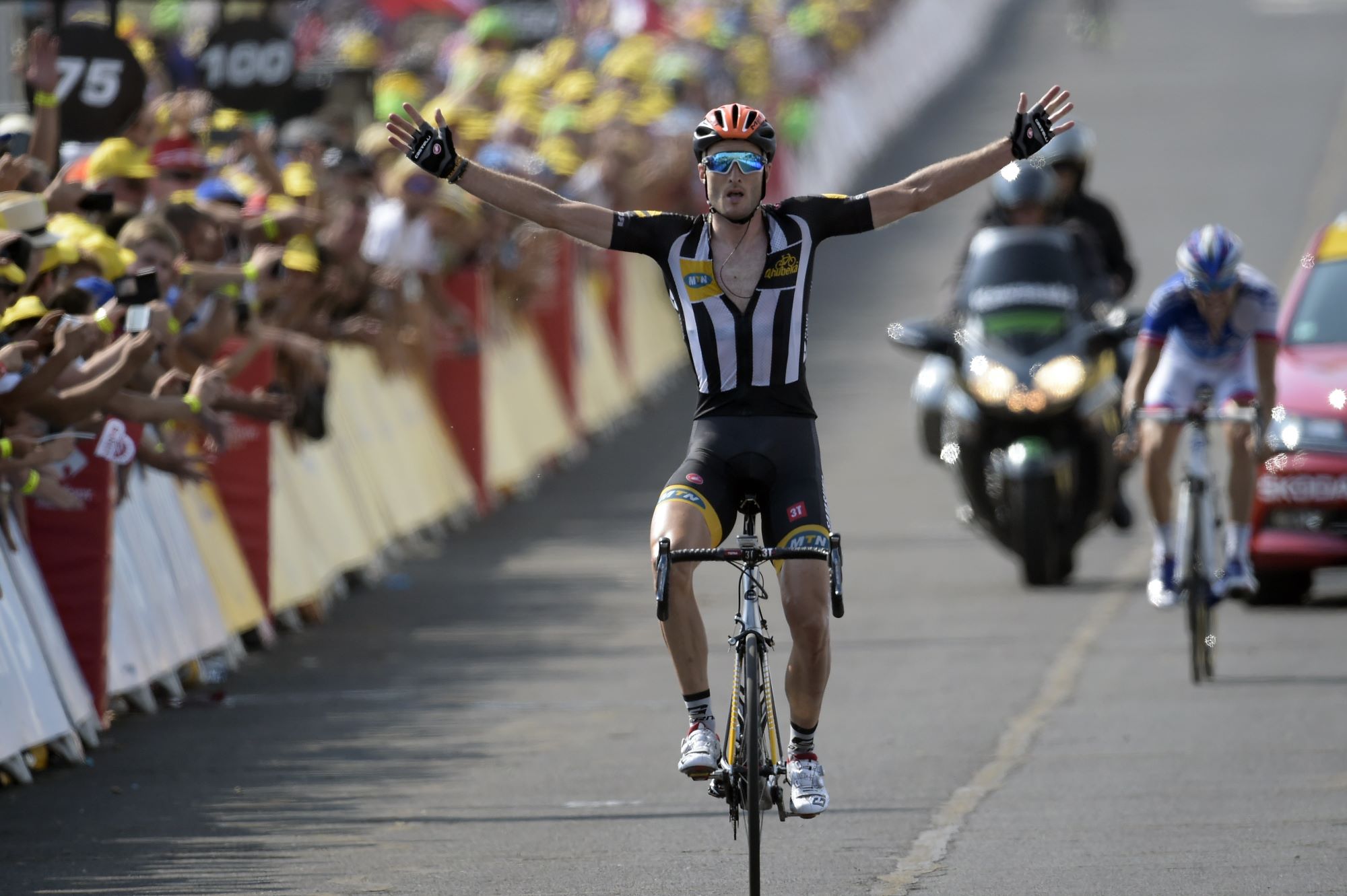 'A stage win in the Tour de France really changed my profile': Steve Cummings on working as a chef, idolising Michele Bartoli, and playing football like Trent Alexander-Arnold
'A stage win in the Tour de France really changed my profile': Steve Cummings on working as a chef, idolising Michele Bartoli, and playing football like Trent Alexander-ArnoldJayco-AlUla Sports Director discusses his most significant career victory and how he got into cycling
By Tom Thewlis Published
-
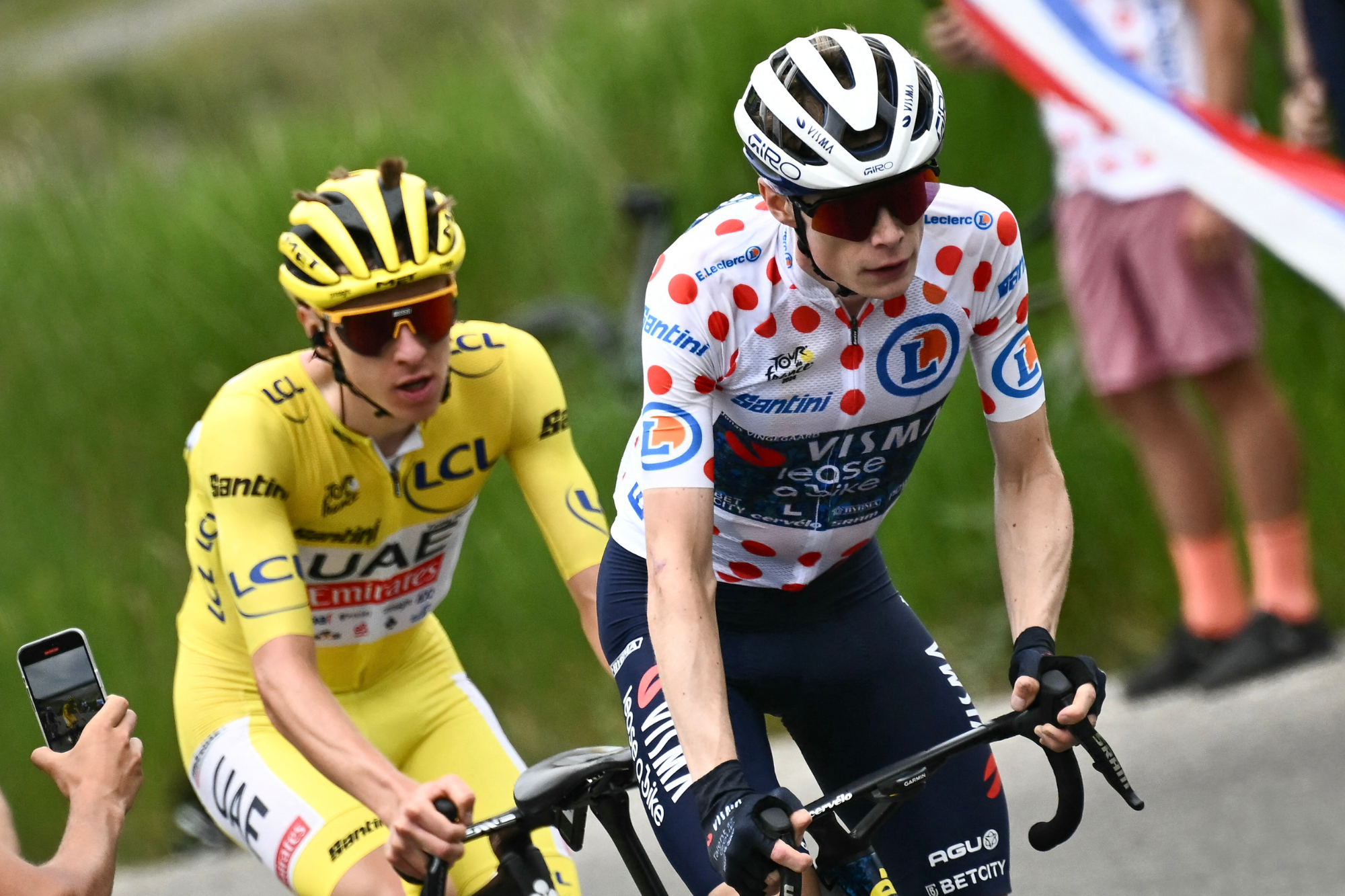 Cycling coverage is getting much more expensive in the UK – tell us what you think
Cycling coverage is getting much more expensive in the UK – tell us what you thinkEurosport is closing down in the UK and there will be no more free-to-air Tour de France coverage in Britain from 2026
By David Bradford Published
-
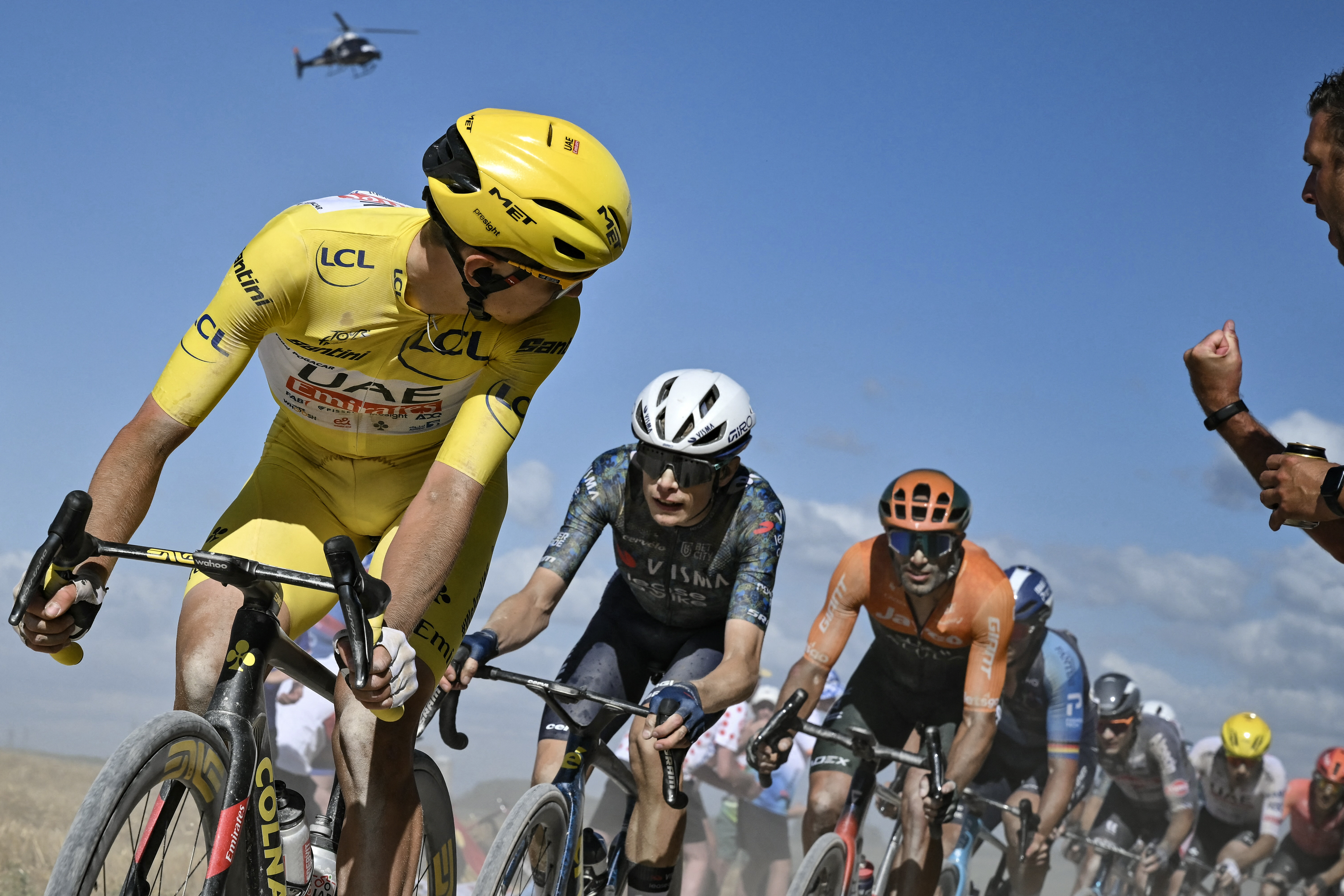 No free-to-air live coverage of Tour de France in UK from 2026, broadcaster confirms
No free-to-air live coverage of Tour de France in UK from 2026, broadcaster confirmsWarner Bros. Discovery (WBD) boss says free coverage of the Tour is “not on our road map”
By Tom Davidson Published
-
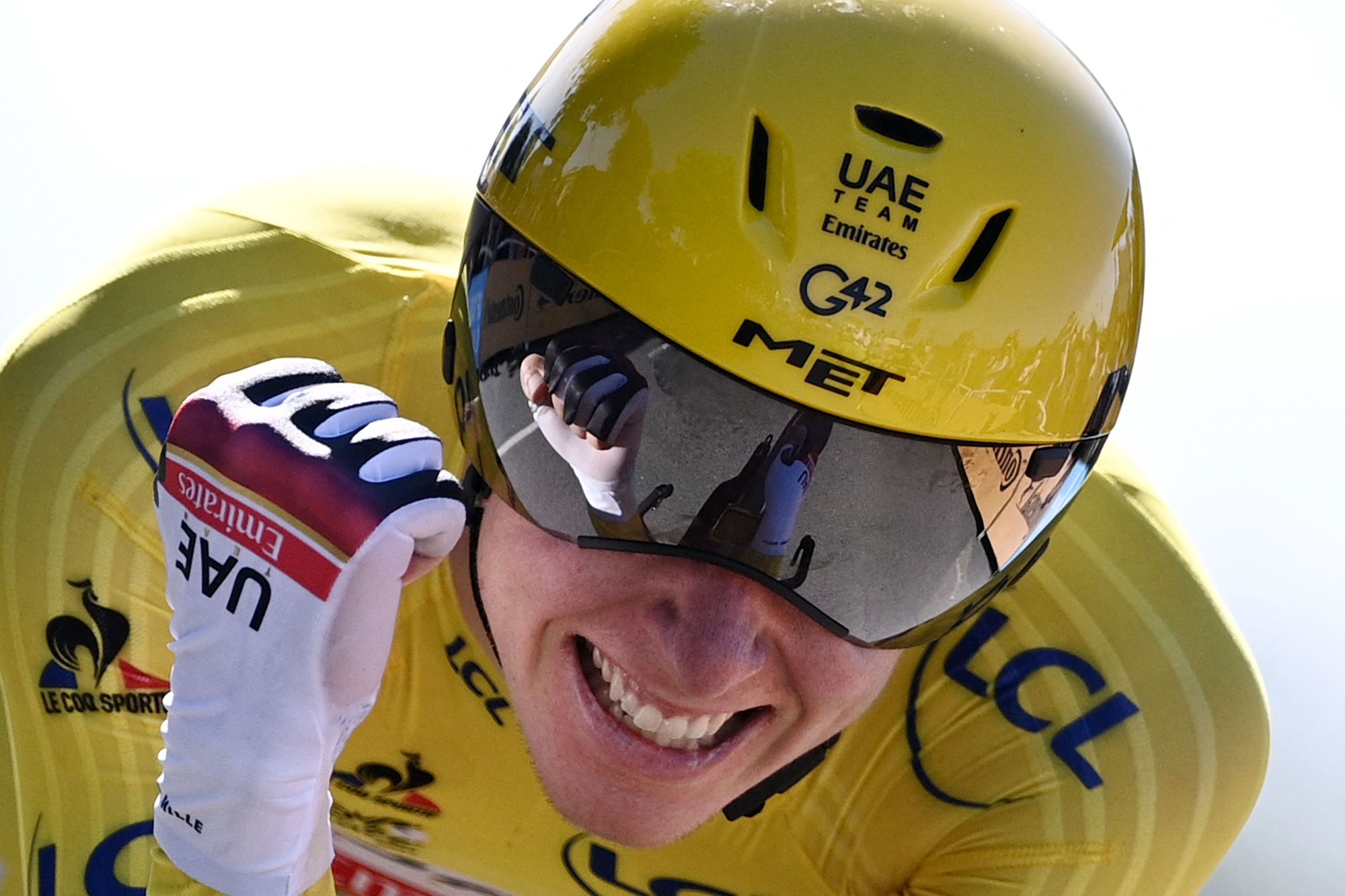 Former Tour de France yellow jersey maker placed into receivership
Former Tour de France yellow jersey maker placed into receivershipLe Coq Sportif also produced kit for the French Olympic Federation during Paris 2024
By Tom Thewlis Published
-
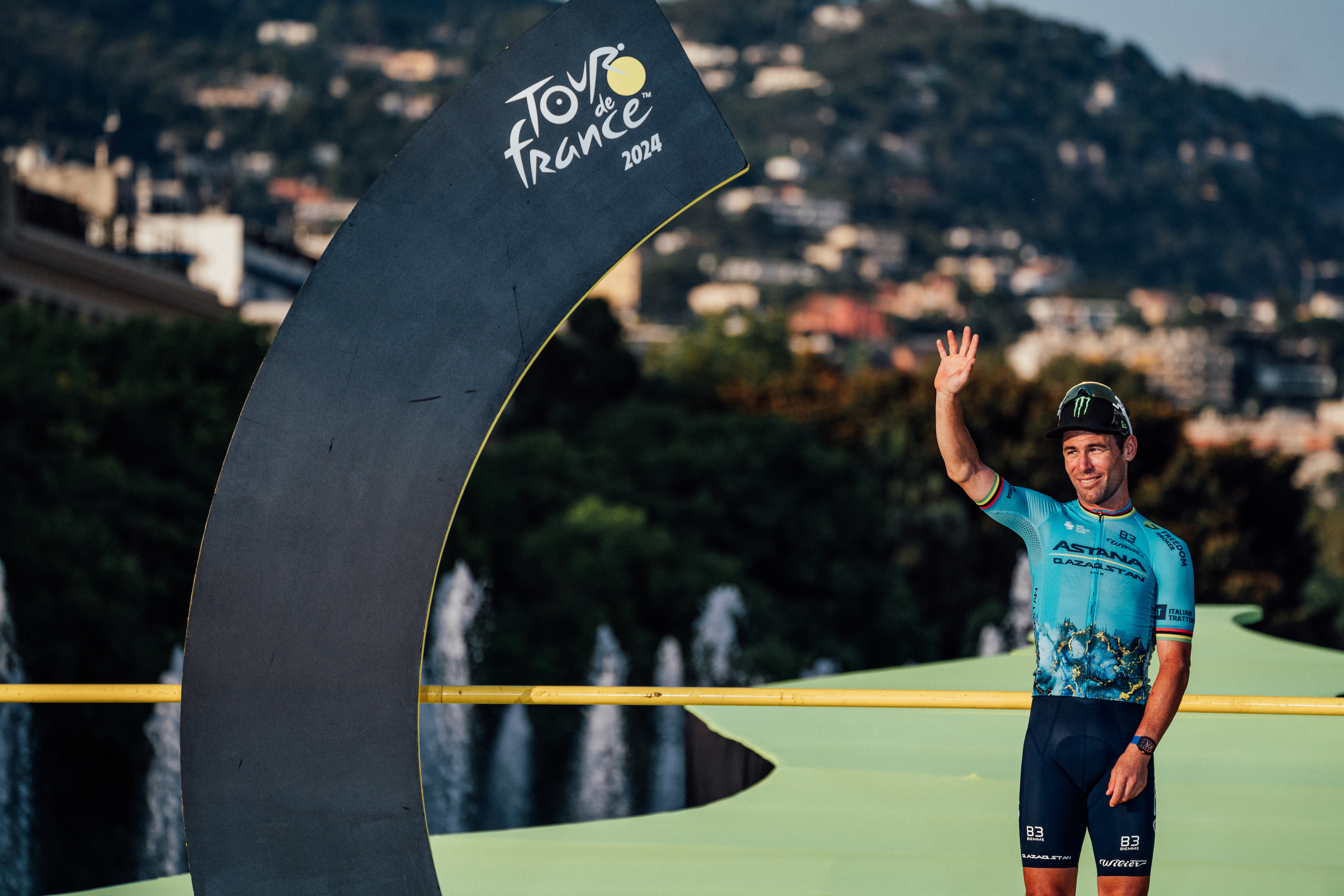 'It's going to damage cycling in the UK' - Ned Boulting, David Millar and Pete Kennaugh react to ITV losing Tour de France rights
'It's going to damage cycling in the UK' - Ned Boulting, David Millar and Pete Kennaugh react to ITV losing Tour de France rightsChannel's commentary team warn of 'devastating effect' of not having free-to-air race coverage
By Tom Davidson Published
-
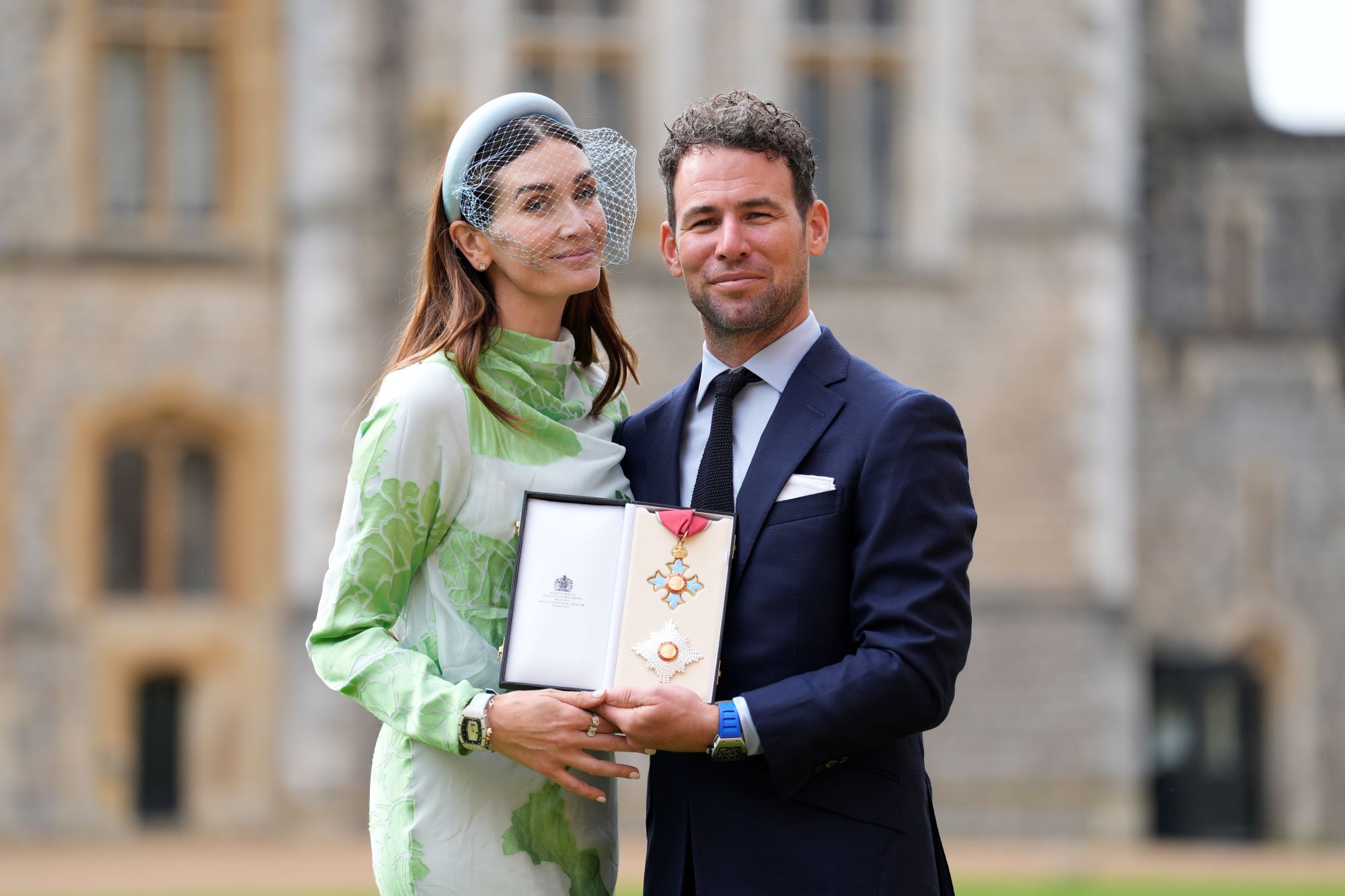 'One of the boys thinks I’ll be walking about in armour': Mark Cavendish knighted in ceremony at Windsor Castle
'One of the boys thinks I’ll be walking about in armour': Mark Cavendish knighted in ceremony at Windsor CastleManxman says he was “nervous” after being made a Knight Commander by Prince William
By Tom Thewlis Published

